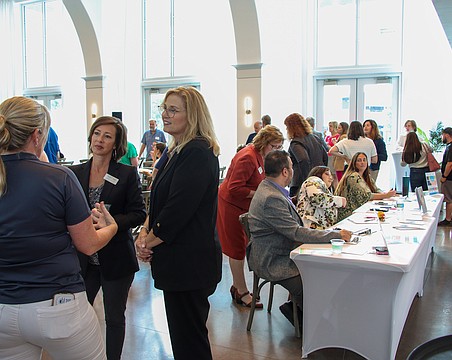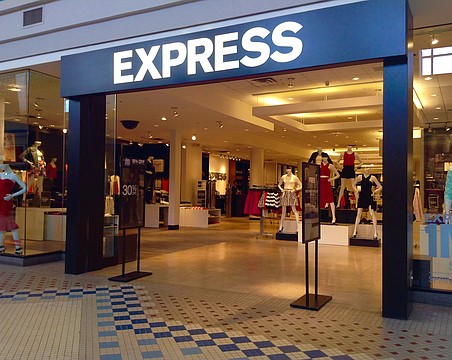Coffee Talk
+ Make no mistake, HMA is no HCA
Health Management Associates sent a clear message to the private-equity vultures circling the Naples-based hospital chain: Back off.
In a bold and surprising move designed to fend off takeover attempts by private-equity investors, HMA loaded up on $3.25 billion in additional debt courtesy of Bank of America. On March 1, it will hand long-suffering shareholders a special cash dividend of $10 per share, or $2.4 billion while suspending its regular dividend.
HMA mimicked the very tactics that private-equity investors use to make acquisitions. These investors typically buy underperforming publicly traded companies using large amounts of debt, restructure the businesses and sell them a few years later at a profit. That's exactly what happened last year to Nashville-based HCA, another hospital company that was acquired by private-equity investors who included Bain Capital and Kohlberg Kravis Roberts & Co.
Until now, HMA has used debt in a very conservative way and has refused to add more debt to its balance sheet. Now, the company has about $3.7 billion in debt and its market capitalization recently was $4.8 billion.
HMA, which operates 57 non-urban hospitals in 14 states, says it will acquire one to three hospitals this year and be able to support growth and debt repayment using cash flows. However, bond-rating agencies reduced the company's debt to speculative or "junk" status after the surprise announcement Jan. 17.
+ Meridian Development posts strong turnaround profit
Steven Kossoff, principal of Clearwater's Meridian Development Group (profiled in the Nov. 10, 2006 Review), paid $7.3 million for Lakeland Interstate Business Park in September 2005. It was his firm's first investment in Florida after relocating to the state from Buffalo, N.Y.
The 168,000-square-foot distribution center had a vacancy rate of 30%, which could scare off most investors. Kossoff saw opportunity. The center fit his firm's profile for investment: It was underperforming and could be turned around.
Soon after Meridian Development bought the center, a new tenant, California-based Sunrise Medical, leased the remaining space.
Earlier this month, Meridian sold the center for $10.4 million, or 42.5% more than what the firm had paid Duke Realty in 2005.
Kossoff previously told the Review the deal was a homerun for the firm. Looks like a walk-off homer for team Meridian.
In Sarasota, though, Kossoff faces more difficulty with the former Winn-Dixie distribution warehouse on McIntosh Road that Meridian Development bought for $30 million about a year ago.
Renamed the Meridian Distribution Center, with new office condominiums planned for part of the property, the 58.6-acre complex still doesn't have any tenants. In addition, the firm awaits county approval for the construction of new office condos.
But Kossoff says he expects to announce leases for about 500,000 square feet, or half the available space, within 30 days. And he expects county approval for the new project within three to four months.
Meridian owns and manages more than 2.2 million square feet of industrial and flex property valued at about $100 million.
+ Florida venture capital funding still falling
It's no surprise that companies in Florida lack easy access to venture capital. Still, it's disconcerting to realize last year's VC funding in the Sunshine State dropped to its lowest level in more than a decade.
Forty-eight Florida companies received about $303.6 million in 2006, down from 54 companies and $369.1 million the previous year, according to the annual MoneyTree report by PricewaterhouseCoopers, Thomas Financial and the National Venture Capital Association.
Ten of the 48 companies that received venture capital were on the Gulf Coast, with eight in the Tampa-St. Petersburg-Clearwater area and one each in the Sarasota-Bradenton and Fort Myers-Cape Coral areas. Ranked highest in the state was the Orlando area with 14 companies, followed by the West Palm Beach area with nine and Tampa Bay with eight.
The all-time high for VC funding in the state was prior to the dot-com bust in 2000 when 143 companies obtained $2.6 billion. Since then, the trend has been mostly downward.
Nationally, venture capital investments rose 12% to $25.5 billion in 2006, the highest level of investment since 2001. And first-time financings reached the highest level since 2001.
The life sciences sector, which includes biotechnology and medical devices industries, received $7.2 billion in 731 deals, up from $6 billion and 647 deals a year earlier. It was followed by software investing, the industrial/energy sector, media/entertainment and Internet-specific companies.
Gulf Coast companies that obtained funding are Siron Therapeutics Inc., Persystent Technology Corp., Acclaris Inc., Skyway Software Inc. and Ideal Image Development Inc., all of Tampa; Tower Cloud, St. Petersburg; Gould & Lamb LLC, Bradenton; and Call Miner Inc., Fort Myers.
Venture Capital Investments in Florida
Year Companies Investment
1996 44 $412.3 million
1997 56 $548.7 million
1998 56 $575.1 million
1999 98 $1.8 billion
2000 143 $2.6 billion
2001 99 $895.1 million
2002 49 $403.1 million
2003 49 $309.1 million
2004 48 $314.1 million
2005 54 $369.1 million
2006 48 $303.6 million
Source: PricewaterhouseCoopers, Thomson Financial and National Venture Capital Association
Most Active Venture capital Investment groups in Florida
Company Amount Invested Companies
1. Oakwood Medical Investors $16 million 1
2. Draper Fisher Jurvetson $4.3 million 1
3. New World Angels Inc. $2.7 million 1
4. Sanderling Ventures $2 million 1
5. Tullis-Dickerson & Co. $1.3 million 1
6. Crossbow Ventures $1.2 million 3
7.Village Ventures $1 million 2
Source: PricewaterhouseCoopers, Thomson Financial and National Venture Capital Association.
People's Bank finds a strong buyer
The strategy of knowing your customers, making sound asset and loan decisions and going after condo association deposits might not be exciting, but in the case of Sarasota-based People's Community Bancshares, it sure has been profitable: The bank is regularly one of the top performing community banks in the Sarasota market.
The strategy paid off yet again Jan. 19, when Montgomery, Ala.-based Superior Bancorp bought People's for $77 million. Superior is paying 2.9 shares for each share of People's stock, at a rate of about $11 a share; the deal is expected to close by the summer.
It's an especially lucrative deal when considering how young People's is (it debuted in 1999, one of seven new community banks in the so-called class of 1999 and 2000) and how high the price-to-value was (roughly 3.2 times book value; NBC Capital paid 2.59 times book value in a 2006 deal for SunCoast, a fellow class of 1999 member).
Executives with both banks described the deal as a fabulous financial fit. "They are doing many of the same things we are doing," People's founder and CEO Neil McCurry Jr. tells Coffee Talk, "but only on steroids."
One thing Superior hasn't been doing is utilizing People's low-maintenance strategy of being a major Gulf Coast destination for condo association deposits and fees, a program that brought the bank $40 million in deposits. In a conference call announcing the deal, Superior CEO Stan Bailey says he intends to use that strategy in other Superior markets.
McCurry says he expects People's, which has branches in downtown Sarasota, downtown Bradenton and Venice, will grow even faster using the Superior formula and resources. What's more, the top executives with People's will retain their positions through the deal and the People's name will remain as well.
Superior has 30-plus branches in Alabama and $2.4 billion in overall assets. It's already in Florida, as it operates 12 branches in the Tampa Bay area under the First Kensington name and eight offices in Northwest Florida. But the Greater Sarasota area will be the bank's best growth-oriented market, Bailey says, adding that the purchase leaves the bank "very close" to its goal of reaching $1 billion in Florida assets.
Bailey, whose bank initially pursued Gold Banc Corp. as a Sarasota-area acquisition, met McCurry through a mutual friend late in 2005, and the fellow executives spoke regularly throughout 2006. They started talking about deal specifics the day after Christmas.
People's Community Bancshares
Total Assets: $325 million (as of 12/31/06)
Return on Average Assets: 1.43% (as of 9/30/06)
Return on Average Equity: 16% (as of 9/30/06)
Superior Bancorp's acquisition of People's Community Bancshares Inc.
Buyer Name: Superior Bancorp
State: Alabama
Target Name: People's Community Bancshares, Inc.
State: Florida
Announce Date: 01/18/2007
Deal Value*: $77.2 million
Price/ Book: 320.47%
Price/ Tangible Book: 320.47%
Price/ LTM Earnings: 22.43
*Deal value based on 1/17/06 price of $32.20 and 2,397,897 shares outstanding
Data as of 1/22/07
Source: SNL Financial LC
+ A rough week for Coast Bank
It wasn't a good week to be either an executive or a shareholder - or both - with Bradenton-based Coast Bank. On Jan. 19, the bank filed SEC documents stating nearly 500 borrowers of mortgages totaling $110 million may not be able to repay their debt, the result of a homebuilder not being able to finish construction.
Predictably, shares of Coast Financial Holdings, the bank's holding company, took a dive on the announcement, dropping almost half of its overall value in two trading days. Shares closed $12.10 Jan. 19, off 25%. By Jan. 22, shares were down to $8.68, including a new 52-week low of $8.09; on both those days, trading volume reached unprecedented highs, including 1.69 million shares on Jan. 22, in comparison to the normal movement of a few thousand shares a day.
Executives and the board have been in defense mode since the announcement, trying to explain the dicey situation.
The builder in question, whom Coast officials declined to name, has halted construction on 482 homes. More than half the loans had already been disbursed and liens were placed on some of the projects, the bank's SEC filing stated. The bank added few other details in the first filing, only to emphasize that bank officials would be investigating and monitoring the situation. Coast executives, including CEO Brian Grimes, did not return phone calls seeking additional comment.
The SEC filing was followed Jan. 22 with a Coast statement explaining the original explanation. In that statement, Grimes says the bank intends to review each of the borrowers construction sites, to see how far along construction is in each case - a process that could take weeks.
The bank would then be in a better position to work directly with the borrowers, who are responsible for repaying the loans, the release states. The report also states Coast officials are "willing to work with each owner on a case-by-case basis to help complete construction and repay the debt."
Coast made two other points in its second statement:
• The bank's total capital to risk-weighted assets was 15.91% as of Sept. 30, above the 10% regulatory minimum;
• There remains $44 million of undisbursed loan commitments out of the $110 million, none of which will be disbursed until construction is picked up again.
Coast Bank has been on a successful, yet sometimes turbulent ride the past few years (See Review, 9/22/06). For instance, while assets have grown annually about 40%, earnings have suffered. The company reported a net loss of $2.5 million in the first nine months of last year, in addition to reporting a 16 cents per share loss the first half of 2006.





